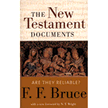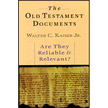We have to begin with the claims of the Bible. Here is a sampling of its truth claims from both the Old and New Testaments (we could give many, many more than just these).
- Psalm 119:160: “All your words are true; all your righteous laws are eternal.”
- 2 Timothy 2:15: “Do your best to present yourself to God as one approved, a workman who does not need to be ashamed and who correctly handles the word of truth.”
Especially note what Jesus himself says. Looking back to the Old Testament, He states, “Scripture cannot be broken” (John 10:35). Looking forward, He made this promise to his apostles, those mainly responsible for writing the New Testament, “But when he, the Spirit of truth, comes, he will guide you into all truth. He will not speak on his own; he will speak only what he hears, and he will tell you what is yet to come” (John 16:13).
Jesus, whose life is the very foundation of reality and truth—the One who could justifiably claim, “I am the way, and the truth, and the life” (John 14:6)—stamped His endorsement on the Old Testament and empowered the authors of the New Testament. If He says the Bible is true, I can believe it.
Additional confirmations involve such matters of deeper study as fulfilled prophecies, historical accuracy, archaeological confirmation, statements confirmed by science centuries later, and so on. I would not claim, however, that these add even an ounce to the infinite weight of the testimony of Jesus Christ. They are merely consistent with that testimony.
Want to go deeper?
The following are useful resources for pursuing your study of the reliability of the Bible:
Recommended for purchase:
Erwin W. Lutzer – Seven Reasons Why You Can Trust the Bible. (2001).
F. F. Bruce, et al. – The Origin of the Bible (2004).
F. F. Bruce –  The New Testament Documents: Are They Reliable? (2003)
The New Testament Documents: Are They Reliable? (2003)
Walter Kaiser –  The Old Testament Documents: Are They Reliable and Relevant? (2001)
The Old Testament Documents: Are They Reliable and Relevant? (2001)
Online resources:
F. F. Bruce – The New Testament Documents: Are They Reliable? (5th ed., 1959)
